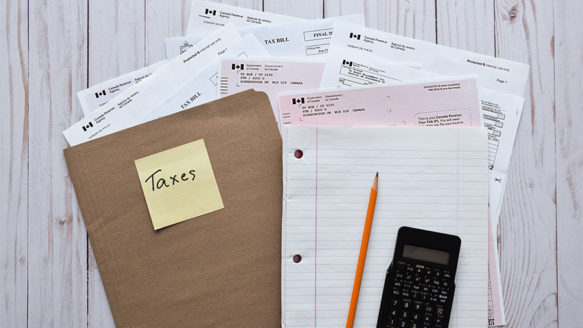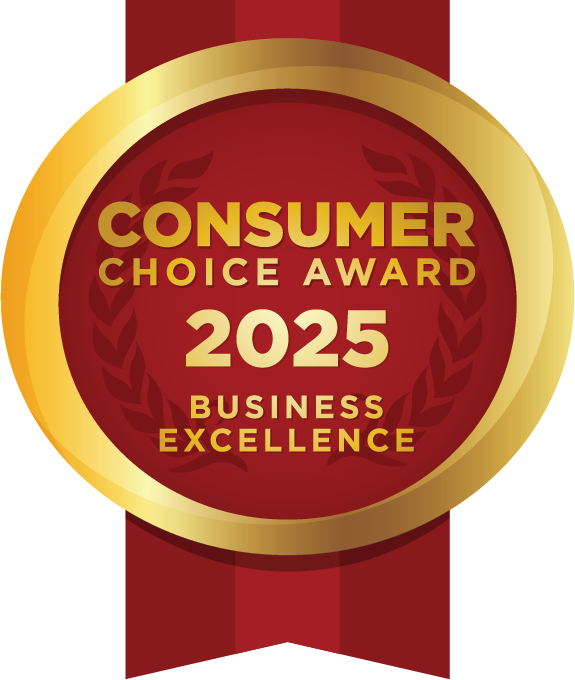
The CRA & Your Debt: What Every Albertan Needs to Know Before Tax Deadline 2025
You might think filing your taxes late is no big deal — until you get a notice of collection from CRA or your bank account gets frozen out of nowhere. The truth? Alberta residents who miss the CRA tax deadline could face growing penalties, interest, or even CRA debt collection — and that’s on top of already feeling stuck making minimum payments on other bills. But don’t panic. In this guide, we’ll explain what the CRA can do, how to avoid the worst outcomes, and what real tax debt relief options are available — including one unique solution only offered by Money Mentors in Alberta.
Why It’s Important to File Your Taxes
Even if you owe money, it’s better to file your taxes than to wait. The CRA tax deadline is April 30, 2025. If you file late, you might get hit with:
- A 5% penalty right away
- An extra 1% every month for up to 12 months
- Daily interest on what you owe
But it’s not just about avoiding fees. Filing your taxes ensures you:
- Receive important benefits (like GST/HST credits or the Canada Child Benefit),
- Create room for RRSP or TFSA contributions,
- Carry forward tuition or other credits,
- And get back any overpaid taxes faster.
Tip: Always file your taxes, even if you can’t pay right away. You’ll avoid bigger problems later.
What the CRA Can Do If You Owe Them
The CRA is different from other places you owe money. If you ignore your debt, the CRA can start collections right away — they don’t have to take you to court.
Here’s what they might do:
- Send a notice of collection CRA
- Take money right from your paycheque (this is called wage garnishment)
- Freeze your bank account
- Put a lien on your house
This can feel scary. But if you act fast, you can stop it from getting worse. CRA collections don’t go away if you ignore them — they grow.
What to Do If You Owe the CRA
If you owe money, you have a few choices:
Option 1: Call the CRA yourself
You can ask them for a payment plan. But remember — you still have to pay it all, and they’ll keep adding interest.
Option 2: Ask for help
If you couldn’t pay because you were sick, lost your job, or had a disaster happen, the CRA may cancel the extra fees. This is called tax debt relief.
Option 3: Talk to a credit counsellor
Money Mentors offers credit counseling services. We are here to help you understand your options, for free.
If You Can’t Pay, You Still Have Options
If your debts feel too big, there is a better way to get help. You don’t need to stay stuck making minimum payments or feel worried all the time.
Here’s a solution just for Albertans: the Orderly Payment of Debts (OPD) program.
This is a debt management program that includes tax debt relief. It’s run by Money Mentors and approved by the government. It helps people pay back CRA debt and other debts in a better way.
Here’s what it gives you:
- One easy payment each month
- A fixed 5% interest rate
- Protection from CRA debt collection
- No more scary calls or frozen bank accounts
Why Minimum Payments Don’t Work
Let’s be honest — paying just the minimum payment on credit card or CRA debt doesn’t feel like you’re getting anywhere. You’re mostly paying interest, not your real debt.
That’s why it feels like your balance never goes down.
But the OPD program helps because:
- You pay one bill a month
- You get a low 5% interest rate
- It includes all unsecured loans (like credit cards and CRA collections)
- You actually pay down your debt
That means you move forward, not in circles.
Can I Join the OPD Program in Alberta?
You may qualify if:
- You live in Alberta
- You are able to make the monthly payments.
- You’ve filed all your tax returns
- You owe money on credit cards, payday loans, or CRA debt collection
If you’re not sure, that’s okay! We’ll help you figure it out with a simple phonecall.
A Real Solution for Real Albertans
Money Mentors is the only place in Alberta that can offer the OPD program. And we are here to help — not to sell you anything. We are a non-profit. That means we help you find the best solution, without pressure.
We have helped thousands of people with:
- Tax debt relief
- Debt management programs
- Credit counseling services
- Debt settlement options
What You Can Do Today
If you feel stuck, don’t wait. Here’s what you can do right now:
- File your taxes before the CRA tax deadline
- Do not ignore a notice of collection CRA
- Book a free appointment with Money Mentors
We’ll help you understand if the OPD program or another option is right for you.
FAQs About CRA Debt and OPD
Q: What happens if I don’t pay my CRA debt?
A: The CRA can start collections. That includes wage garnishment or freezing your bank.
Q: What if I only make the minimum payment on my debts?
A: You’ll pay more interest, and it may take years to become debt free.
Q: Can the OPD help with both CRA and credit cards?
A: Yes! It’s a credit card debt relief program that includes CRA debt and other unsecured loans.
Take That First Step Today
If you’re living in Alberta and feel buried in debt — whether it’s taxes, credit cards, or loans — you are not alone. There is help. And it’s better than you think.
Money Mentors offers:
✅ Free support
✅ Real answers
✅ A clear plan
We’re not here to judge. We’re here to help you feel hope again.
👉 Speak with an Accredited Financial Counsellor
👉 Learn More About OPD
👉 Explore Credit Counseling







